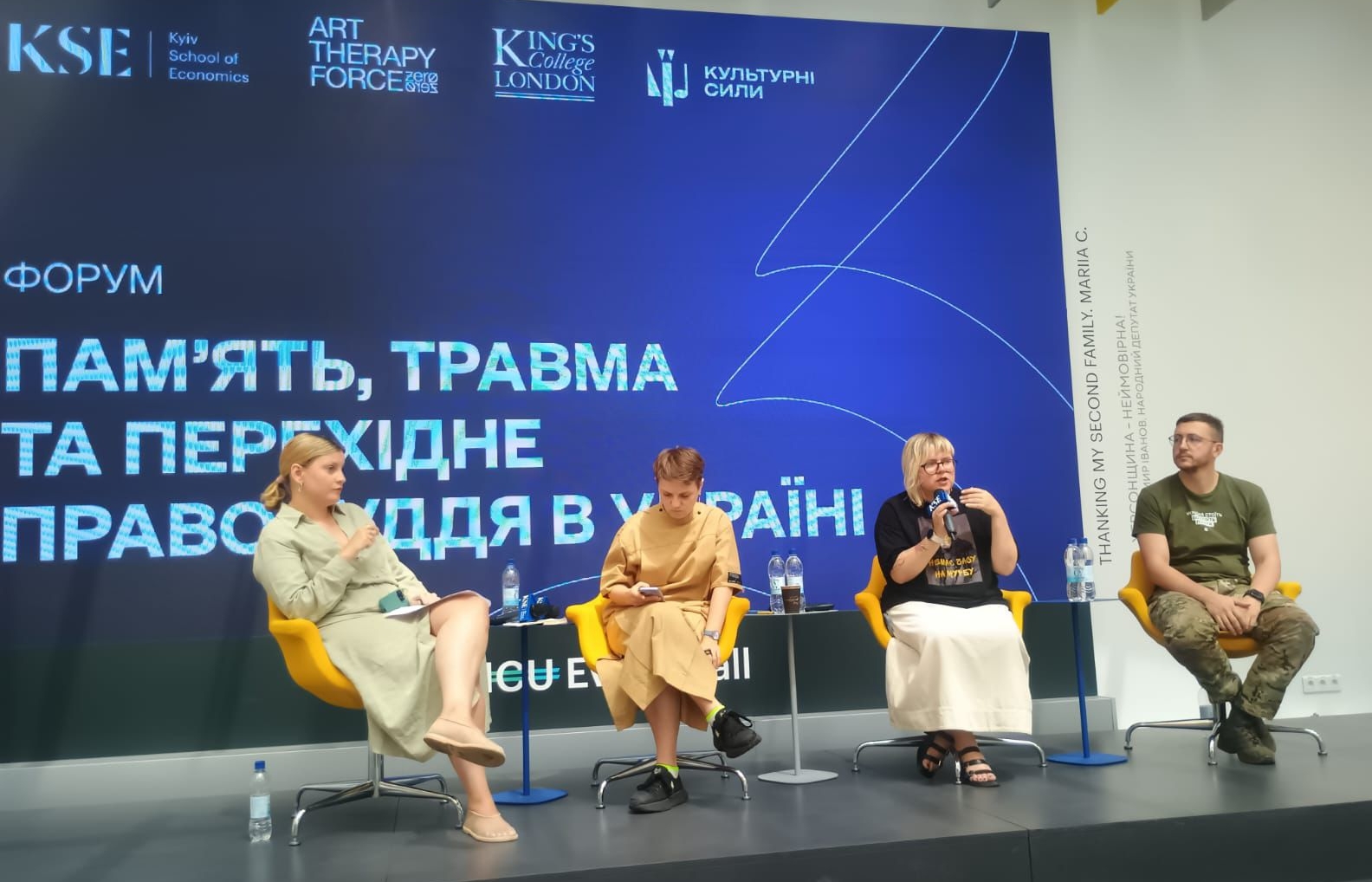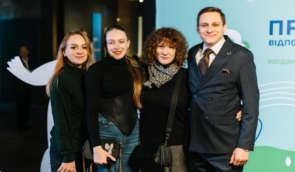Alena Lunova participated in the KSE Forum on memory, trauma and transitional justice in Ukraine
On 17–18 July, Kyiv hosted the Forum “Memory, Trauma and Transitional Justice in Ukraine”, organised by the Kyiv School of Economics in cooperation with King’s College London, the NGO “ART DOT”, and with the participation of representatives of the Cultural Forces Ukraine, a division of the Armed Forces of Ukraine that deals with cultural diplomacy and the mental health of military personnel and civilians in frontline regions.

The Forum brought together researchers, artists, military personnel, human rights defenders and representatives of civil society to reflect on what justice might look like in the current Ukrainian context, how to work with trauma, and what role art and commemoration play in this process.
Alena Lunova, Advocacy Director of the Human Rights Centre ZMINA, took part in the event. She joined the second panel on the first day of the Forum, “What does justice in Ukraine look like? Documenting war crimes in Ukraine”, where she, together with journalist Nataliia Humeniuk and service member and representative of the Cultural Forces Ukraine, Vitalii Okhrimenko, discussed current approaches to documenting crimes committed in the context of Russia’s full-scale invasion against Ukraine. The panel was moderated by independent researcher Valeriia Voshchevska, who previously worked at Amnesty International and Human Rights Watch.
In her speech, Alena Lunova emphasised the change in approaches to documenting war crimes in the period after 2022 compared to 2014–2017. According to her, documentation serves not only as a tool for the legal prosecution of perpetrators, but also as a means of preserving memory and documenting the damage caused by Russia’s armed aggression against Ukraine.
“This aligns with the public perception of justice, but the key demand remains the same: accountability and punishment of perpetrators. At the same time, expectations of the overburdened national justice system need to be somewhat adjusted to reality. At the same time, it is worth developing other tools for achieving justice that are not necessarily linked to the judicial system,” said the Advocacy Director of ZMINA.
In addition to the panel on justice, the Forum’s programme was very broad. It included public discussions, presentations of international experiences, practical workshops and discussions on future forms of cooperation in the field of transitional justice.
If you have found a spelling error, please, notify us by selecting that text and pressing Ctrl+Enter.















